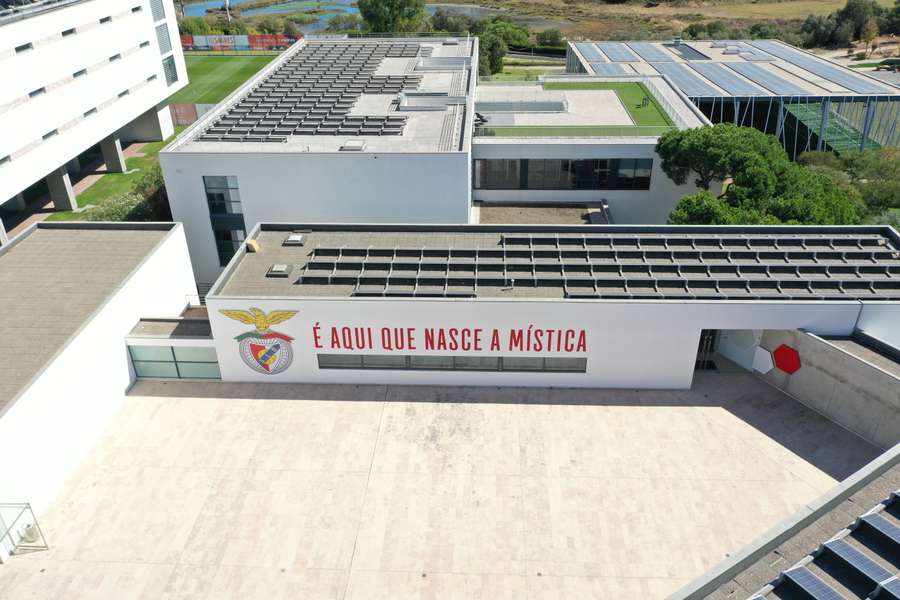It was 10am (CET) on a Wednesday when Flashscore were welcomed into the heart of Benfica's youth academy. Guilherme Muller, general manager of Benfica Campus, was our main host. While the general public has become accustomed to training centres being a protective bubble for all secrets, here it was quite the opposite. We saw everything we asked to see, asked all our questions and were impressed by the excellent organisation and working conditions that make Benfica Campus one of the best academies in the world.
Bernardo Silva, Ruben Dias, Joao Neves, Goncalo Ramos, Joao Felix, Joao Cancelo, and many others took their first steps to stardom at Seixal. There are more stars in the making, and there was something that stood out about all the budding talents we came across: there was always a greeting and a good morning from everyone, including staff, coaches and employees.
This is also part of the Benfica DNA. In addition to developing players, they build men and instil values for sport and for life.
"The personal and social development department plays an essential role in this regard. We recognise the importance of this department. We mustn't forget that we're talking about boys between the ages of 12 and 18," Muller told Flashscore.
"There is permanent monitoring. We have rotating tutors who are always present in these kids' lives, as well as coaches and other support staff. This close monitoring is essential, but so is a whole other view of society that they might not even find at school.
"There is a complementarity of social action that begins to be instilled in young people right from the start. Foster homes, disadvantaged families, and social responsibility institutions. There's a lot of proximity. So Benfica has to play this role in the community."
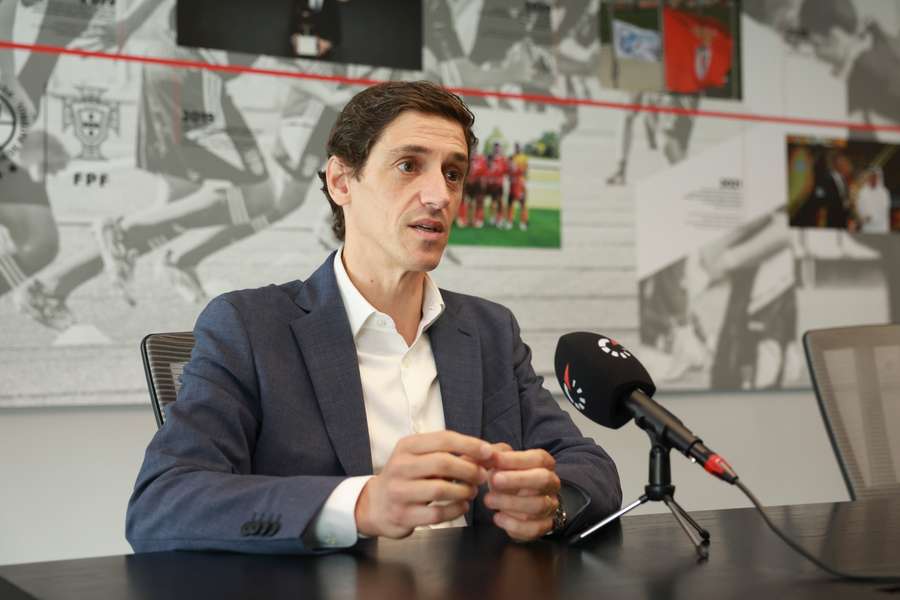
President Rui Costa's message
Rui Costa represented Benfica as a player, but it was as a director that he got to know and helped develop the Benfica Campus. First as sporting director, announced in 2008, and then as president, succeeding Luis Filipe Vieira in the post in 2021, before winning the elections in October of the same year.
"Benfica Campus is of strategic importance to consolidate Benfica, both in sporting terms and in its immense international reach. It is in our 'Talent Factory' that we instil and develop the values and principles of 'Playing the Benfica Way', developing some of the best athletes and professionals in the world, both in terms of competition and in their human and social development. For us, Benfica Campus represents Benfica's identity and soul, pushed to the limit to win," Rui Costa told Flashscore.
"Benfica Campus is and always will be one of the strongest pillars of our vision for the future of Sport Lisboa e Benfica," added the Eagles' president.
An extensive scouting network
At the moment, 80 young people live in boarding at Benfica Campus, mostly coming from the 'Training and Development Centres' and chosen from around 200 candidates. To get to Benfica Campus, they all go through a rigorous selection process, initially outside the facilities in Seixal.
In Greater Lisbon, work is done at Cidade Universitaria and, outside the capital, there are training and development centres in Faro, Viseu, Aveiro, Vila Real, Braga, Leiria and also abroad, namely in Luxembourg, Lithuania, Malta, Morocco, as well as at the Benfica Residential Academy in the United States (Florida), and various technical partnerships in countries such as Brazil, the United States, Sweden, Scotland, Ireland and others, where the working methodology is connecting all youth development, called 'Formar à Benfica'.
"Formar à Benfica is a platform that we make available to our coaches, regardless of whether they are at the Benfica Campus, the EUL, the training and development centres, or in our academies abroad, because, in the meantime, Benfica has chosen a path of international expansion and therefore has a number of academies around the world, a project that it intends to continue developing," explains the general manager.
"This platform is made available to the coaches who are there. It's a very detailed platform on how Benfica sees its youth development in all aspects, both in terms of player profiles, what is expected by position, what is expected in tactical terms from the team, and what the model of play is.
"In all these parameters, we invite our coaches to follow a model, believing, of course, with some flexibility, that they can add something, but following a basic model that we consider will develop a certain type of player."
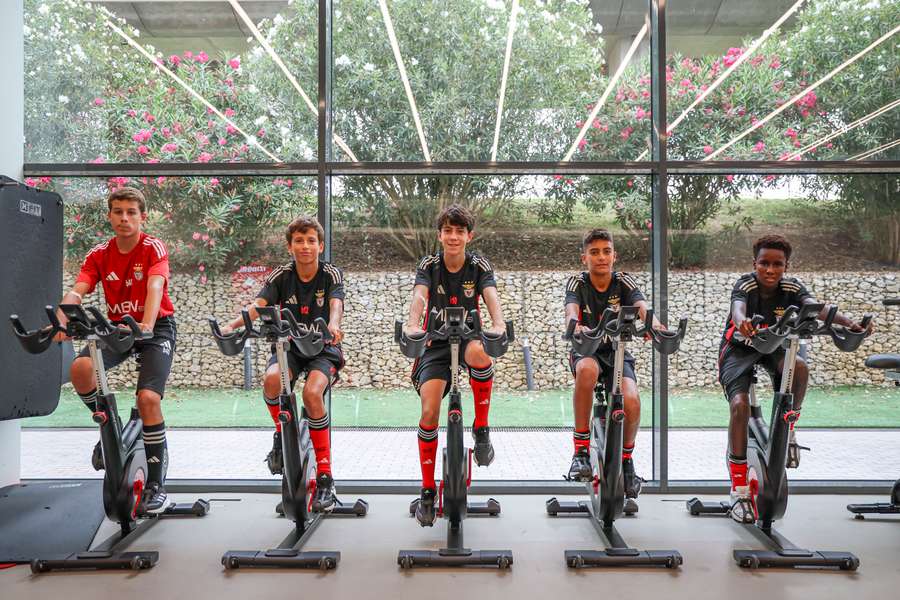
This process is the result of many years of work and informal discussions about how a certain player profile should be developed, based on the Benfica DNA and what is sought for the future. Luis Araujo, who has been at Benfica Campus since day one, has had an active role in implementing the methodology, alongside several youth coaches.
"For many years, the fact that we shared the same workspace created many informal moments of debate and discussion about how to play, the player profile, the Benfica player profile, the position profile, the training model, and it was these informal discussions that gave us what we thought could be the training model and the player development model," Araujo adds.
"Then there was the next step, which is very much within each of us. Then all the coaches who came in gave their input into what was defined as 'Formar à Benfica'.
"There's a document, a player development model that we make sure is never closed, it's always in development, and we're always in constant discussion for another addition to what our player development model is."
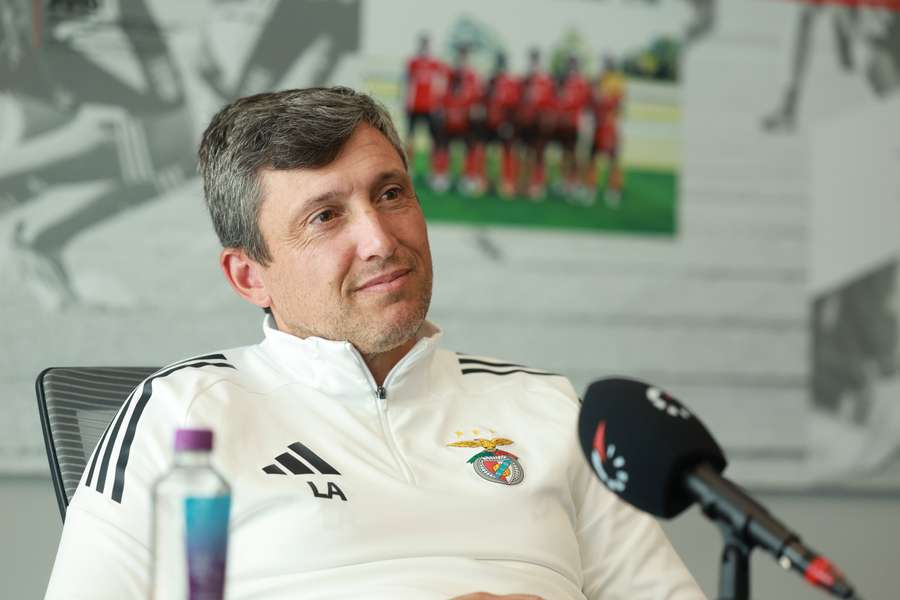
The model and Benfica's DNA
Currently in the B team and already nine years with the club, central defender Joao Fonseca came through the Aveiro Training and Development Centre. It was a decisive step for him to arrive at Benfica Campus.
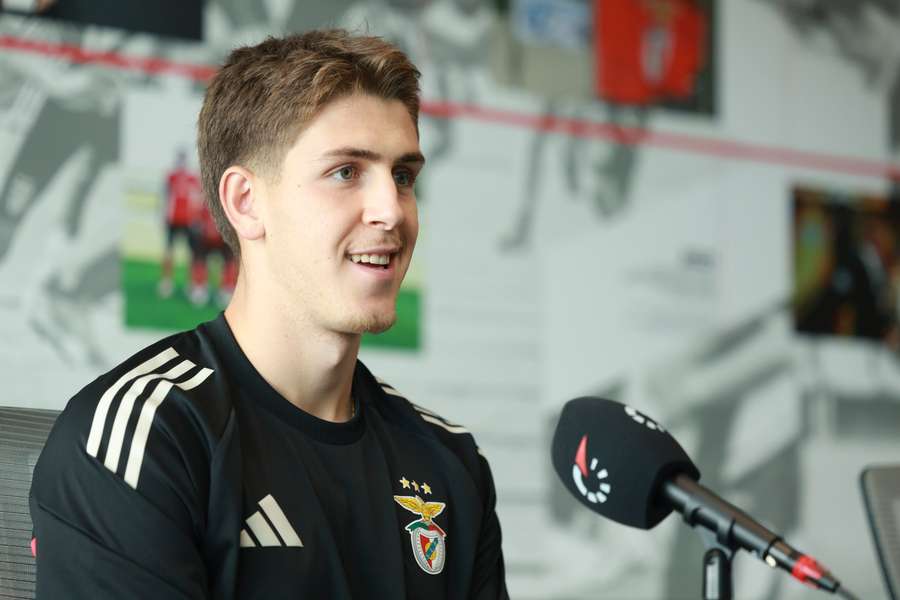
"I think it's all very professional," he said. "The biggest difference I felt was really in terms of facilities. The coaches were all very competent. Then we'd end up having tournaments in which various CFT players would get together, we'd socialise well, and I think those were very happy moments that I'll always remember."
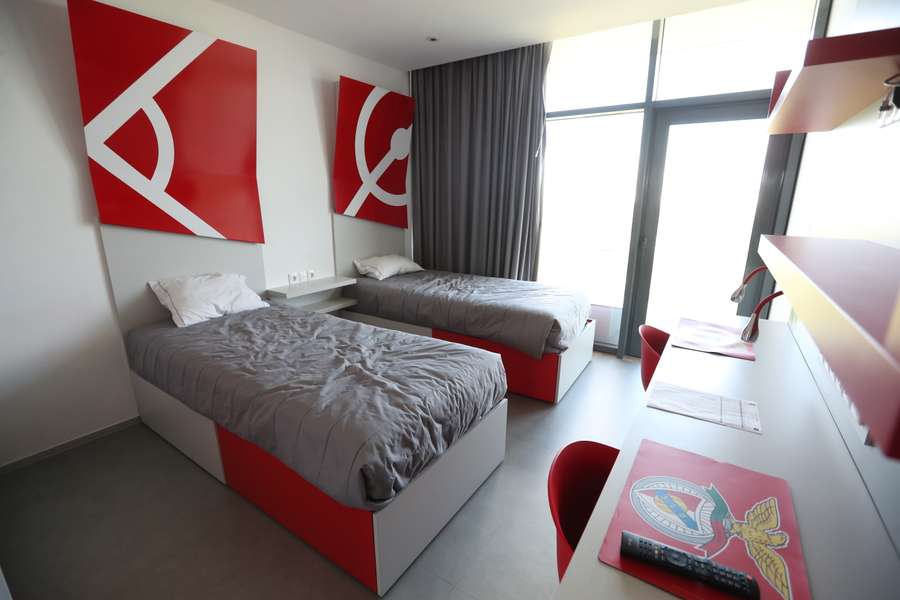
You might have expected a change when he arrived at the facilities in Seixal, but that didn't happen: "It's a continuation. The work carried out there was already very similar, and it was an easy adaptation in terms of training."
For those who run the Benfica Campus, this approach is non-negotiable. There is an identity that must remain, with the clear objective of increasingly delivering to the Benfica first team players who follow a certain line of work and success, regardless of who the first team coach is, guarantees Guilherme Muller.
The general manager stated: "The club has a model, the club has a profile that it believes in. It believes in a player and in what Benfica values. The player, as an example of values on and off the pitch, but also in the four usual dimensions of performance.
"Regardless of the quality of the coaches, regardless of the experience of the coaches, it can't be dependent on the profile of a particular coach who may, at one point, be at the club, but then no longer. What we want is for the A-team coach, when he looks at these youngsters, to be able to recognise in them characteristics of what is typically expected and what the fans expect.
"It won't be the same if the model of the game the boy has spent five, ten or fifteen years playing is different, if the type of instructions he is given are different, if the type of positioning on the pitch is different, if the way he should behave on the pitch is different. So what we want is for there to be a lot of uniformity in the way we prepare our players," he explained.
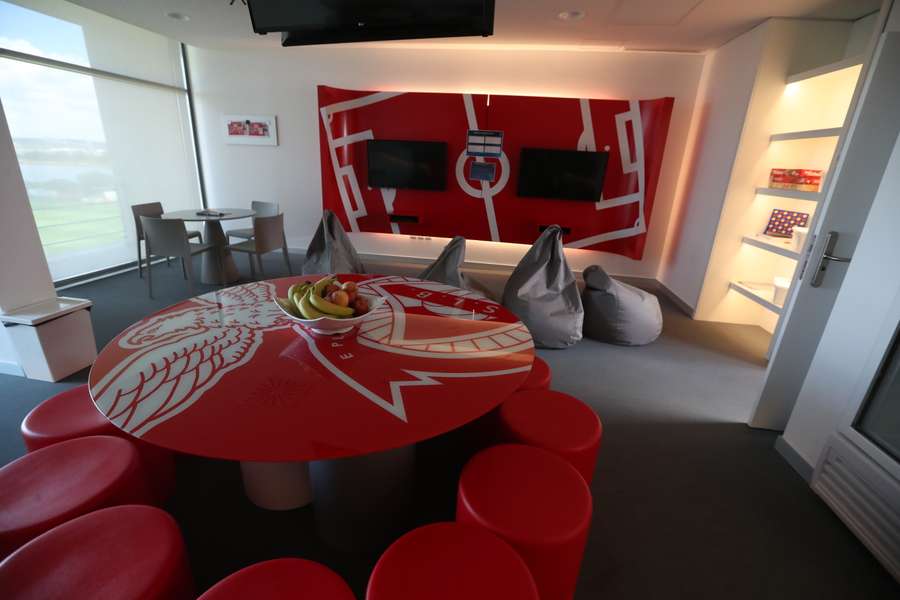
At Benfica Campus, eight out of 10 players will become professional footballers in the future. That's an incredible success rate.
"I don't know if there are many universities with this employability rate. So I think it's a real reason for parents to believe that their children could one day become footballers. Even if not necessarily in Benfica's first team," adds Muller.
From Ruben Dias to Joao Felix
And there are many success stories, even if they don't make the first team. However, some grow up to become world-class players, such as Ruben Dias, Joao Neves, Bernardo Silva, Goncalo Ramos, Joao Cancelo, Joao Felix and many others, some of whom were coached by Luis Araujo.
"I often say that these are the greatest trophies a youth football coach has during his career. Fortunately, because I work at Benfica, I've won a lot of team titles. But seeing a youth player make his first-team debut and establish himself in international and professional football fills us with pride. At home, I've often been moved to see these players triumph. So it's the realisation that the goal we set ourselves and committed to with Benfica is being achieved. But to say that it's a goal that's been achieved, no, because this is our job and we have to keep challenging ourselves so that more players can reach these heights," explained the coach.
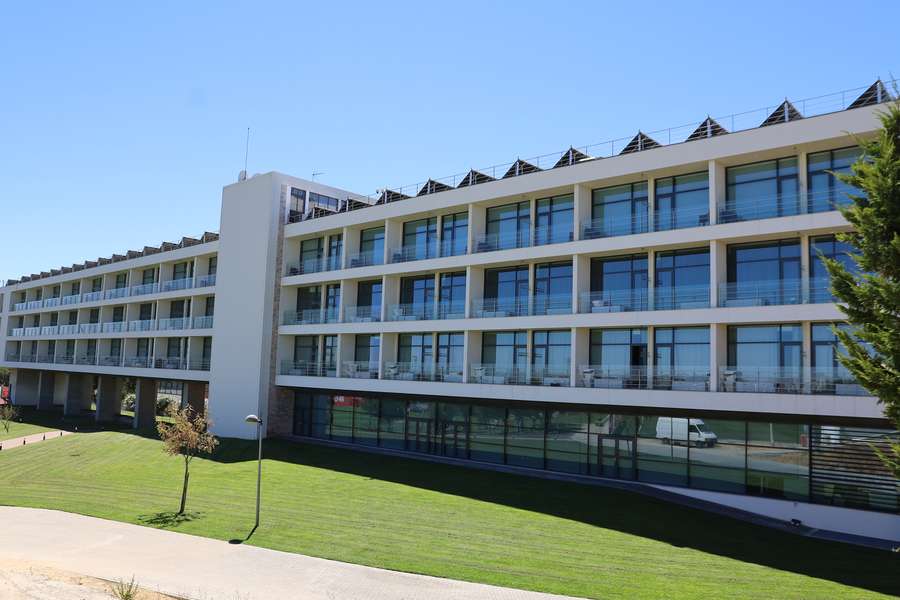
80 trophies won in youth development
All these players had in common the experience of living at Benfica Campus, which, since its creation, has already won 80 national and international trophies, with the 2021/2022 Youth League at the top of the list. The culture of winning is present in every corner, but there will be times when you have to take a step back to win more in the future. Swapping a youth title for more players in the first team isn't the end of the world; it's an affirmation of the project.
Muller explains: "I have to answer yes to that question. That's our mission. That's what I work for every day, that's what I've been asked to do. Although, of course, I'm extremely pleased and thrilled with any of the titles I won last year. As well as the national championships, also the Under-23 Revelation Cup, because it was the first time we'd won a title at this level, which is a difficult level within Benfica; it's very demanding for both the coach and the player.
"I'm therefore very satisfied, not least because the Benfica environment, its members and fans, demand it. We have to refresh our mission from time to time, to make sure that nobody forgets that what we really have to do here is get at least two players a year into the A team. That's our mission."
Araujo interjects: "Without a doubt, the main objective is to develop players for the first team, but without ever forgetting a very important part of player development, which is the social part and the citizenship part of the youngsters, whom their parents entrust to us and many of whom, at the age of 12 or 13, leave their families to come and live here. So we also have an added responsibility to develop not only players, but also men."
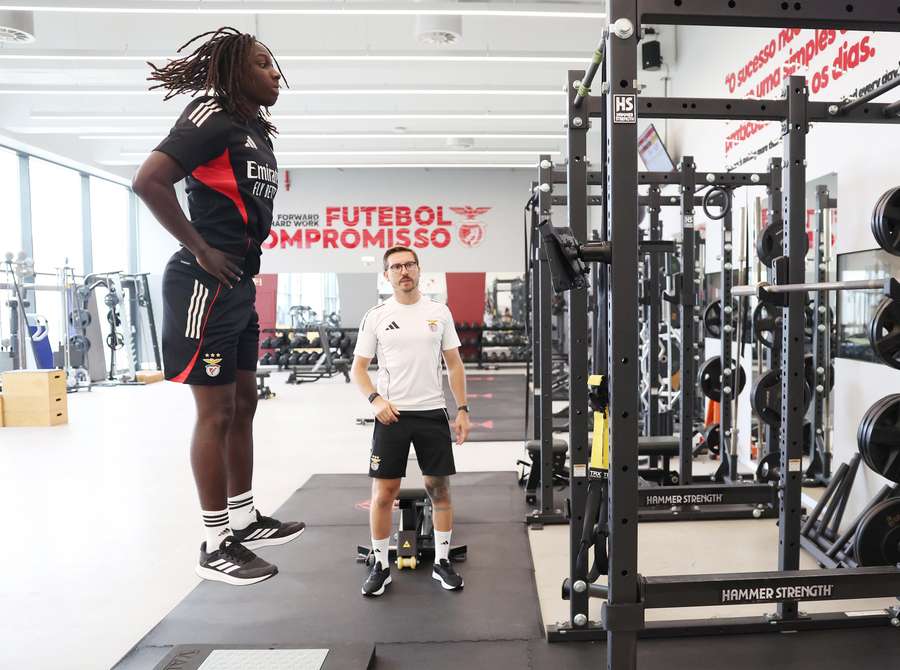
800 million euros in youth sales
An undeniable reality is the revenue from Benfica Campus, valued at around 800 million euros to date, well above what rivals Sporting and FC Porto have achieved.
"It's very good for several reasons. Because it shows that the return on investment made in Benfica's youth development is enormous. There will be few companies that, with the investment that has been made over the last nineteen years in Benfica Campus and the rest of the youth system, can achieve such a good return," said Muller.
One of the problems common to all Portuguese football is the immediate retention of talent. The solution is to try to retain them for longer and longer, because it's practically impossible to compete with the great powers of European football.
The Benfica Campus director adds: "I think that if we're serious about this assessment, it's also difficult for the footballer. Anyone, no matter how much they love their job, works with the aim of earning money to support themselves for the rest of their life. And so, naturally, if the aim is to earn money from their work, if they are offered a lot more money to do the same job, they will tend to accept.
"And then there's the sporting perspective. The truth is that at the moment, Benfica doesn't have the same ambitions as other powerhouses with much more money. While it's obvious that Real Madrid is a super contender to win the Champions League, or the Club World Cup, or anything else, and the same applies to Barcelona and others, it's not like that for Benfica.
"Benfica has that ambition, and rightly so, according to its history, but it's not obvious that it's the first candidate. I think our challenge in youth football is to create more quality players so that one will have to finish his journey in year one, another we'll be able to keep in year two and another we'll be able to in year three. I think that this being our challenge, we have to try to prepare them even better so that they can then be given more opportunities to show that they can carry this plan through to the end."
But it's not just the players who are coveted at Benfica Campus. Many coaches and other staff members can't be retained to work at Benfica: "Benfica has a clear and defined plan for developing its resources, and so they are also lured by competitors with more financial capacity than Benfica has, and so this has also been a reality in Benfica's youth football in recent times. Benfica can't compete with this influx of wealthy clubs from all over the world."
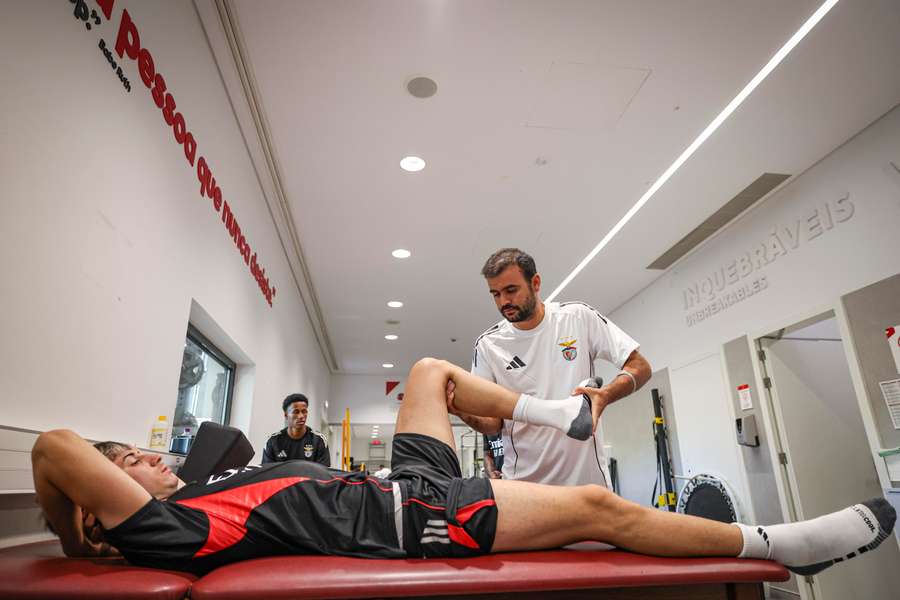
19 years, 19 hectares
The facilities are state-of-the-art and are not inferior to those of the world's greatest football powers. With 19 years completed last September, there's still plenty of room for growth. Benfica Campus has everything in an area of 19 hectares. Nothing has been left to chance. It's a sports city that, as well as youth development, houses the first team on training days and women's football. There are two hundred employees who ensure that the players have everything they need. From training and competition, to meals, education, psychological and pedagogical support, and leisure time. Time never stops, and evolution is constant.
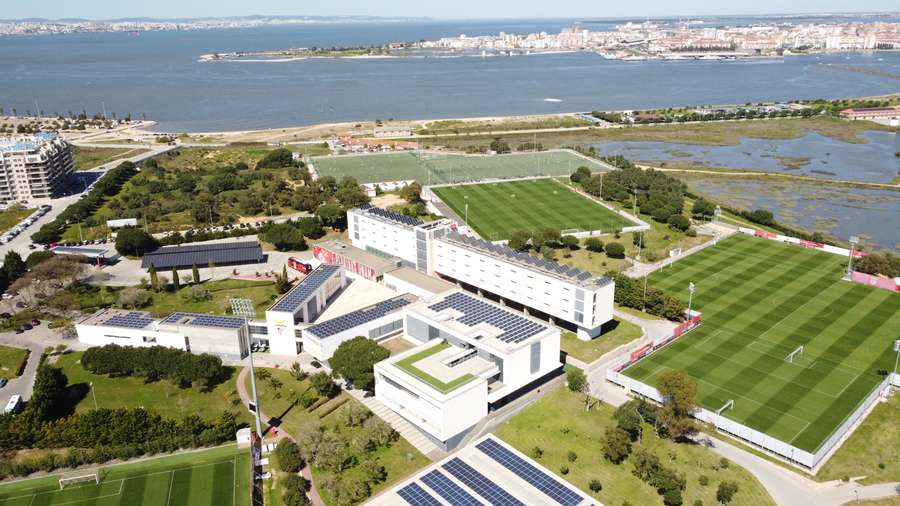
Muller finishes his time with Flashscore by saying: "This sports facility has evolved over time. From 2006 to now, it has evolved in different ways, but mainly in its own size. In other words, it started with just a few pitches, it has expanded a lot, it started with fewer teams, it increased the number of teams, it increased the number of support services for the players, and, therefore, today, I have no doubt that it's at the level of the best.
"What we're feeling, of course, is that the pressure has increased a little. Benfica has continued to grow in terms of the number of teams. The senior women's football team also already uses this facility. In the meantime, compared to when it started, an under-23 team has been created.
"The B team also didn't start from the beginning, so what we feel is that there is some pressure at the moment and that, in the not too distant future, we may have to consider the possibility of this infrastructure possibly growing, particularly in terms of pitches. I'll give you an interesting comparison.
"We were at Chelsea for the Youth League match. In terms of working conditions for the people and even the infrastructure for the players, I honestly think we're better off than Chelsea. In terms of methodology, we're second to none. We have six grass pitches, and let's say two and a half synthetic pitches. They have one synthetic pitch and thirty-one grass pitches."
It's a significant difference, which often puts constraints on the various working moments, but it doesn't stop talent from constantly appearing, even if it's not currently on the radar of members and fans.

